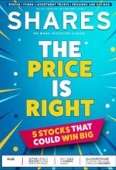Archived article
Please note that tax, investment, pension and ISA rules can change and the information and any views contained in this article may now be inaccurate.
How to buy foreign shares and the key details you need

Many investors only look at the UK stock market for opportunities, but in doing so they would be missing out from a much bigger pool of interesting companies listed on overseas markets.
Some of the world’s leading companies trade on stock markets outside of the UK, including retail giant Amazon, German carmaker Volkswagen, Swiss food producer Nestle and US consumer electronics giant Apple.
Most mainstream investment platforms offer the ability to buy and sell shares that trade on overseas markets and dealing costs have reduced materially over the past decade or more.
There are some key points to consider when you are buying and selling foreign shares, which we discuss in this article.

What are ADRs and GDRs?
It is possible to gain access to other markets through the US with some non-US firms tradeable through ADRs (American depository receipts). These are certificates that represent shares in an overseas company.
A bank buys shares, holds them in a depositary, and sells the receipt to an investor typically in another currency. Generally, each ADR will contain more than one share per depositary receipt.
The UK market has a similar version called a GDR or global depositary receipt.
A UK investor might find it easier to buy and sell US-listed ADRs in Chinese e-commerce giant Alibaba than to invest in its China-listed stock, for example.
There are some UK-listed stocks which have dual listings overseas, such as AstraZeneca (AZN) in the US or Unilever (ULVR) in the Netherlands. In these examples, UK investors may find it easier and cheaper to trade the UK shares than their overseas-listed counterparts.
COST AND CURRENCY CONSIDERATIONS
You must consider the impact that currency movements can have on your investment returns when buying overseas-listed stocks.

Foreign exchange costs and how they are applied vary between investment platforms. Typically, conversions into the local currency are done on a deal-by-deal basis and when you look to trade an overseas stock on a UK platform your price will be quoted in sterling. Dividends are also converted into sterling when they are received.
As with any exchange of currency a charge is incurred when converting from one to another. Depending on the platform provider, some foreign investments may only be possible to trade over the phone which typically comes with much higher costs than trading online – occasionally three times as much.
Having the ability to trade international stocks online is largely a function of whether they are available as CDIs which stands for Crest Depository Interests. In effect these are UK securities which represent an underlying interest in an overseas share. You may see some stocks with CDI in their name.
Some markets, such as India, are very difficult for UK investors to trade due to a lack of liquidity or because there are restrictions on foreign ownership. Funds and exchange-traded funds can be an alternative way of gaining access to equities in these countries.
The extent to which charges matter to you will depend on whether you’re planning to hold stocks for the long-term or looking to trade in and out of them frequently.
It is also worth remembering you are at the mercy of fluctuations in exchange rates. A fall in sterling relative to other currencies would increase the value of your international holdings when they are converted back into pounds but if the UK’s currency rallies their worth to you will be negatively impacted.
Understanding the impact of FX charges and dividend taxes
If you bought £500 worth of shares in US e-commerce platform Ebay and paid a typical £10 dealing charge and 1% foreign exchange charge, £15 or 3% of the overall value of your investment would go on dealing costs.
The charge on converting your dividend into sterling might be around half the 1% forex costs paid when purchasing the shares. If you factor in a 15% withholding tax, the 18 cents dividend per share announced in Ebay’s 2021 first quarter numbers would come to you as roughly 15 cents per share once the charges and taxes had been applied.
TAXES AND DIVIDENDS
Overseas shares can be held in an ISA or SIPP (self-invested personal pension) if they trade on an ‘HMRC recognised exchange’. You can find a full list here.
Before investing in US shares, you will need to complete a W-8BEN form, which you can normally do online. Tax treaty arrangements between the US and UK mean that the usual 30% withholding tax on US dividends is halved to 15% by completing this form.
A W-8BEN form is not required for US investments held within a SIPP as the relevant US authority, the IRS, recognises SIPPs as a qualifying pension scheme and all qualifying US dividends and interest are automatically paid free of any withholding tax.
There is a Canadian equivalent, the NR301 form, which cuts withholding tax on Canadian shares from 25% to 15%. Just as with US shares, Canadian shares held in a SIPP are not subject to withholding taxes. Most investment platforms do not reclaim withholding tax on income from any other foreign countries.
Like the stamp duty paid on UK shares, there are government levies in some territories on share purchases and additional charges associated with local stock exchanges. These will be shown on the contract note you receive from your platform after completing a trade.

WHEN ARE OVERSEAS MARKETS OPEN FOR BUSINESS?
Another consideration with trading overseas stocks is the different time zones involved.
This is not a significant issue with the European exchanges, most of which open at a broadly similar time to the London market.
The North American markets do not represent too much of a problem either as they close at 9pm UK time. On the face of it though, active trading on the stock exchanges in the Asia-Pacific region is likely to remain the preserve of insomniacs.
Time zones are not an insurmountable problem as some brokers allow you to place orders outside of an exchange’s normal hours of trading. In addition, you can often place a ‘limit order’ to purchase the shares at a specified price when the market is open.
You should also consider that international markets may be open on UK bank holidays (when trading in London is paused) and countries may have their own public holidays which see local exchanges closed.
GETTING THE INFORMATION
It is potentially harder to get the same level of information on overseas-listed companies as it is for UK stocks.
The internet can help, and price information can be found at sites such as finance.yahoo.com and www.google.com/finance. In addition, most large foreign-listed companies have websites in English offering news updates and the latest financial reports.
But transparency is a potential issue with smaller companies, even though most of the markets available to trade in the UK have good levels of disclosure.
Important information:
These articles are provided by Shares magazine which is published by AJ Bell Media, a part of AJ Bell. Shares is not written by AJ Bell.
Shares is provided for your general information and use and is not a personal recommendation to invest. It is not intended to be relied upon by you in making or not making any investment decisions. The investments referred to in these articles will not be suitable for all investors. If in doubt please seek appropriate independent financial advice.
Investors acting on the information in these articles do so at their own risk and AJ Bell Media and its staff do not accept liability for losses suffered by investors as a result of their investment decisions.

 magazine
magazine








